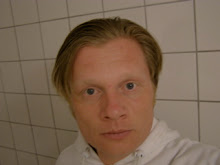Der skal selvfølgelig tages forbehold, at forældre som sætter børn i privatskole, meget muligt tager deres børns uddannelse og trivsel mere alvorligt.
Men omvendt skal der ikke være tvivl om at skolegang af højere kvalitet, skaber elever der kan mere.
Fra wiki om finsk lakrids, undskyld skolegang:
Finland has consistently been among the highest scorers worldwide; in 2003 Finnish 15-year-olds came first in reading literacy, mathematics, and science, while placing second in problem solving. In tertiary education, the World Economic Forum ranks Finland #1 in the world in enrollment and quality and #2 in math and science education.Education after primary school is divided into vocational and academic systems, according to the old German model. Traditionally, the systems do not interoperate, although some of the de jure restrictions have recently been lifted. In particular, an important difference compared other systems is that there is no common "youth school" — ages 15–19 are spent either in a trade school, or in an academic-oriented upper secondary school. Trade school graduates may enter the workforce directly after graduation. Upper secondary school graduates are taught no vocational skills and are expected to continue to tertiary education. A national speciality in contrast to some foreign systems is the academic matriculation diploma (Abitur) received after successful completion of upper secondary school, which holds a high prestige.
Finland lader akademikere undervise disse unge på det akademiske niveau.
Fra Lennart Kiils blog:
Britiske privatskoleelever ender med at tjene 30 procent mere end dem, der har gået på en statsskole. Selv når man korrigerer talene for socioøkonomiske forskelle, resterer 20 procents forskel, der kan tilskrives bedre undervisning på privatskolerne.



0 kommentarer:
Send en kommentar